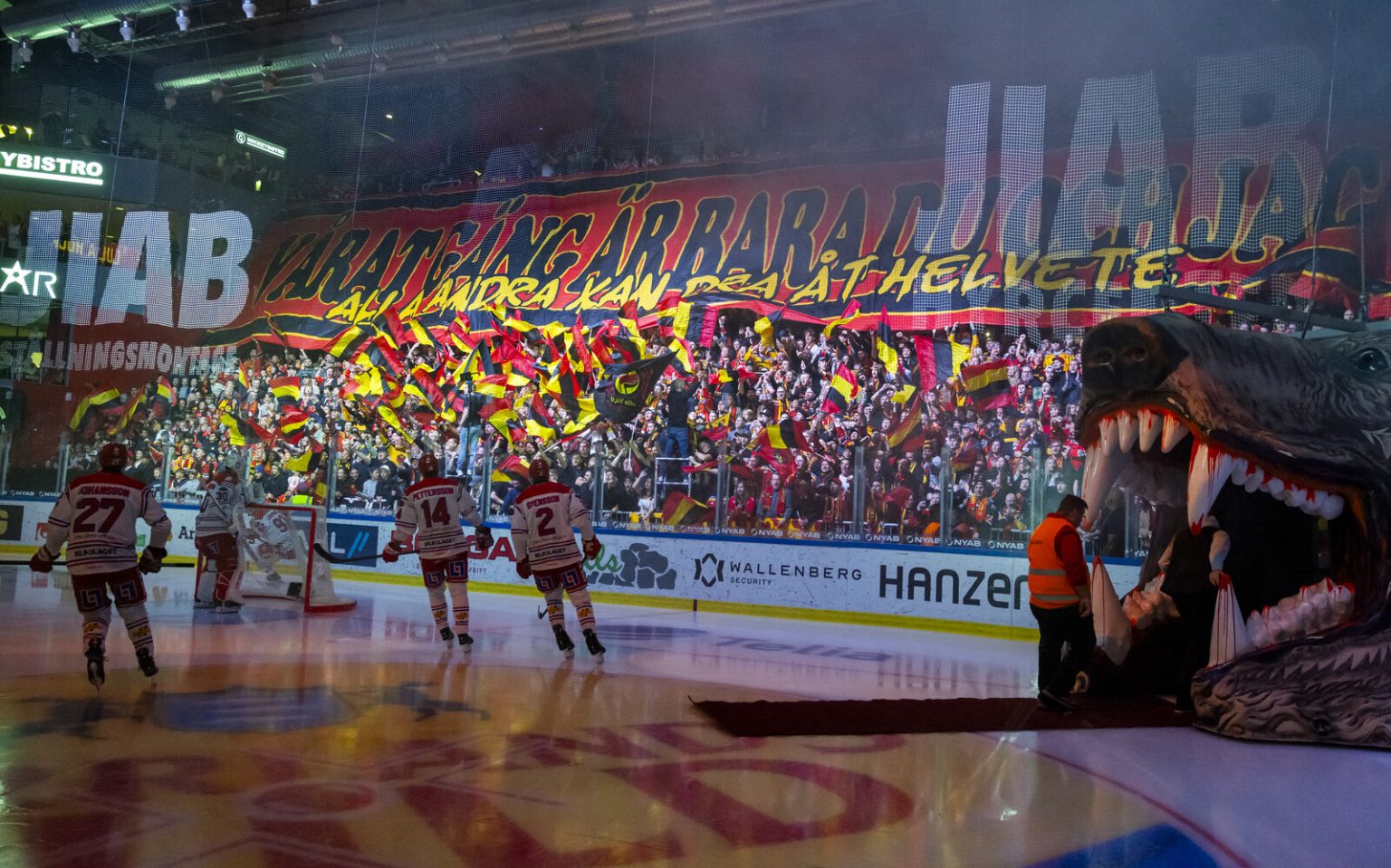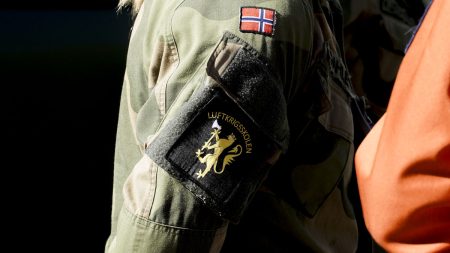The Swedish Ice Hockey Association (Svenska Ishockeyförbundet) has issued a second penalty against Luleå Hockey for repeated violations of the league’s controversial ”flag ban.” This new fine of 25,000 kronor comes just a fortnight after the club was sanctioned with a heftier 50,000 kronor penalty for the same infraction. The recurring issue centers around Luleå’s home supporters persistently displaying unauthorized items, primarily flags and banners, within the arena stands, defying the league’s regulations. This ongoing conflict between the club’s passionate fanbase and the SHL authorities underscores deeper tensions regarding supporter culture and the league’s perceived heavy-handedness in regulating fan expressions.
The continued defiance by Luleå’s supporters suggests a strong disagreement with the rationale behind the flag ban. While the SHL maintains that the ban is necessary to ensure a safe and orderly environment for all spectators, many fans perceive it as an unnecessary restriction on their ability to express their support for the team. The relatively short time between the two fines indicates the entrenched nature of this conflict and the difficulty the club faces in effectively enforcing the ban among its dedicated fan base. This escalating situation also highlights the potential for financial repercussions for clubs struggling to control supporter behavior, raising questions about the proportionality of the fines and the long-term effectiveness of such punitive measures.
The repeated fines imposed on Luleå raise questions about the effectiveness of the SHL’s approach. While financial penalties can serve as a deterrent, they may not address the underlying reasons for the persistent disregard of the flag ban. Some observers argue that a more constructive approach would involve engaging with supporter groups to understand their concerns and explore potential compromises. Open dialogue and collaboration could lead to mutually agreeable solutions that respect both the fans’ desire to support their team and the league’s commitment to maintaining order and safety. Furthermore, the SHL might consider reviewing the specific regulations surrounding supporter items, potentially allowing for certain types of displays while prohibiting others that pose legitimate safety risks or obstruct views.
The situation in Luleå also reflects a broader debate within Swedish hockey regarding the balance between fan engagement and crowd control. The passionate atmosphere created by enthusiastic supporters is a vital part of the sport’s appeal, but concerns over safety and potential disruptions need to be addressed. Striking a balance that allows for vibrant fan expression while ensuring a secure environment for all attendees is a complex challenge. The SHL’s current approach, as evidenced by the repeated fines against Luleå, seems to prioritize control over engagement. This stance risks alienating dedicated fans and potentially dampening the atmosphere at games, which could have long-term negative consequences for the league’s popularity and financial viability.
The repeated fines levied against Luleå highlight the need for a more comprehensive and nuanced approach to supporter regulations in the SHL. A punitive approach focused solely on financial penalties may not be sustainable or effective in the long run. Instead, the league should consider proactive measures such as fostering open communication with supporter groups, revisiting the existing regulations to allow for permissible forms of fan expression, and investing in educational campaigns to promote responsible fan behavior. By working collaboratively with fans rather than against them, the SHL can create a more positive and inclusive environment that benefits both the league and its dedicated supporters.
The case of Luleå serves as a valuable case study for the SHL and other sports leagues grappling with similar challenges. It underscores the importance of clear communication, consistent enforcement of rules, and a willingness to engage in constructive dialogue with supporter groups. The ongoing situation also emphasizes the need for a balanced approach that respects the passion of fans while ensuring a safe and enjoyable experience for all attendees. By learning from this experience, the SHL can develop more effective strategies for managing supporter behavior that promote positive fan engagement while maintaining order and safety within its arenas. This proactive approach will ultimately contribute to a more vibrant and sustainable future for Swedish hockey.














